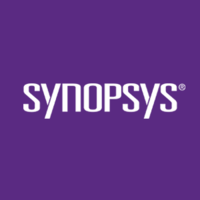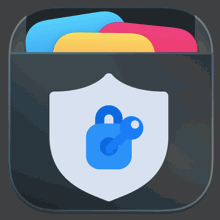Description

BKP365

Zaperon
Comprehensive Overview: BKP365 vs Zaperon
As of my last update in October 2023, specific products named BKP365 and Zaperon were not widely recognized or discussed in major tech, business, or industry resources. It is possible that these are niche products, very new entrants to the market, or perhaps products within a specific industry that has limited exposure or visibility in broader contexts.
However, I'll offer a framework for how you might analyze and compare two technology products if they were part of a broader competitive landscape. For a more directed analysis, you might need to consult specific company resources, press releases, or industry reports related to these products.
a) Primary Functions and Target Markets
BKP365
-
Primary Functions: Typically, a product with a name like BKP365 could be deduced to have functions related to cloud services, data management, or business productivity, hinting at parallels to solutions like Microsoft 365 or backup services. These could include data storage, collaboration tools, business applications, or perhaps specialized backup solutions integrated for enterprises.
-
Target Markets: The target market might include small to large-sized businesses looking for integrated solutions to manage data, enhance collaboration, or ensure business continuity through reliable backup and recovery systems.
Zaperon
-
Primary Functions: Zaperon might function in areas such as cybersecurity, automation, business intelligence, or workflow management. Depending on its core capabilities, it could provide solutions for enhancing security postures, automating business processes, or analyzing data for actionable insights.
-
Target Markets: The target markets might encompass enterprises particularly in sectors with high compliance needs like finance, healthcare, or IT services that require robust cybersecurity or automated operational workflows.
b) Market Share and User Base
-
BKP365: If this product is positioned similarly to established business productivity suites, its market share would be assessed in relation to giants like Microsoft 365 or Google Workspace. It would need significant differentiators to capture a substantial user base, and initially, it might appeal more to niche markets or specific industries.
-
Zaperon: Competition in areas like cybersecurity is quite dense with players like Norton, McAfee, and CrowdStrike, whereas in automation, firms like UiPath or Automation Anywhere dominate. Zaperon’s market share would depend greatly on its unique offerings and integration abilities with existing enterprise systems, potentially appealing to a specialized user base.
c) Key Differentiating Factors
-
BKP365: To stand out, BKP365 would need to offer unique features such as superior integration capabilities, cost advantages, enhanced security measures, or specific business applications not covered by competitors. An intuitive user experience or AI-enhanced functionalities could also serve as differentiators.
-
Zaperon: Differentiation might come from advanced machine learning algorithms in cybersecurity, specific compliance features aligned with industry standards (like HIPAA, GDPR), or unique automation workflows that dramatically improve efficiency. Integration ease with existing software ecosystems could also be a significant factor.
Conclusion
For an accurate and up-to-date comparison, one would need to locate detailed product descriptions, user reviews, market analyses, or customer testimonials directly from company resources or trusted industry reports. Consider reaching out to company representatives for specific details or watching for press releases that might shed light on their current market positions and strategic objectives.
Contact Info

Year founded :
2006
+91 92120 00234
Not Available
India
Not Available

Year founded :
2021
Not Available
Not Available
India
http://www.linkedin.com/company/securewithzaperon
Feature Similarity Breakdown: BKP365, Zaperon
As of my last update, neither BKP365 nor Zaperon are widely recognized products within the mainstream technological landscape. It's possible that they are either niche tools, private/internal organizational software, or fictitious product names. Consequently, I am unable to provide a direct feature similarity breakdown for them.
However, in order to provide a comprehensive response based on the context this question might fall under, I can guide you on how to conduct a feature comparison if given access to product details:
a) Common Core Features
To identify common core features between two software products, you would typically look at:
-
Functionality: Both products may offer similar functionalities or serve the same industry need, such as data management, analytics, or process automation.
-
Integration Capabilities: They might share the ability to integrate with other commonly used tools or platforms, like CRM systems, databases, or cloud services.
-
User Management: Many enterprise solutions offer roles, permissions, and user management as a common feature.
-
Reporting and Analytics: If they are tools related to data, common features might include built-in reporting, dashboard capabilities, and data analytics.
b) User Interface Comparison
-
Design Aesthetics: Modern products often focus on a clean, intuitive UI, but the specific layout, theme, and visual appeal might differ.
-
Ease of Use: Evaluate how user-friendly each interface is, which might involve assessing navigation simplicity, clear labeling, and quick access to key features.
-
Customization: Check if users can customize their dashboards, settings, and notifications.
-
Responsiveness: Assess how well the UI adapts to different screen sizes and devices, ensuring a mobile-friendly design.
c) Unique Features
To determine any unique features, consider:
-
Innovative Tools: One product may offer a unique tool or capability that the other does not, which can be its differentiating factor.
-
Advanced Technology: Features utilizing AI, machine learning, or blockchain might set one product apart, enabling more sophisticated operations.
-
Special Integrations or Partnerships: Exclusive partnerships or integrations with other platforms that provide added value.
-
User Experience Enhancements: Features like smart search, predictive suggestions, and enhanced collaboration tools might be unique to one.
For specific insights, you may need to look at the product brochures, official websites, or third-party review sites which often compare software products. If BKP365 and Zaperon are new products, reaching out to their sales or support teams for detailed product comparisons might also be beneficial.
Features

Data Security
Restore Options
Backup Management
User-Friendly Interface

User Experience
Security
Collaboration Tools
Best Fit Use Cases: BKP365, Zaperon
BKP365 and Zaperon are designed to address different business needs, and their applicability varies based on industry requirements, company size, and specific use cases.
BKP365
a) Best Fit Use Cases:
-
Small to Medium-Sized Enterprises (SMEs): BKP365 is ideal for small to medium-sized businesses looking for reliable data backup solutions. Its scalability ensures that these businesses can start with basic backup needs and grow as their data volume increases.
-
Cloud-First Organizations: For businesses that heavily rely on cloud infrastructure, BKP365 offers robust cloud backup solutions. This is particularly beneficial for companies that prioritize remote work and need secure data access and recovery options.
-
Regulatory Compliance: Industries such as finance and healthcare, which are required to comply with stringent data protection regulations, can benefit from BKP365's comprehensive backup strategies. It ensures that data is stored securely and is easily retrievable to satisfy compliance audits.
-
Disaster Recovery Planning: Companies looking to implement strong disaster recovery protocols can use BKP365 to ensure that their business operations can resume quickly in the event of data loss incidents.
Zaperon
b) Preferred Scenarios:
-
Real-Time Data Processing: Zaperon is suitable for businesses that require real-time data analysis and processing capabilities. This is crucial for industries like finance and e-commerce, where timely insights influence decision-making.
-
Automation-Driven Operations: Businesses that aim to streamline processes through automation would find Zaperon's capabilities beneficial. It's perfect for organizations looking to automate workflows and reduce manual intervention.
-
Integration-Heavy Environments: Companies that utilize a wide array of tools and platforms will benefit from Zaperon's ability to integrate seamlessly with various applications. It is ideal for enterprises that need a centralized hub for disparate systems to communicate effectively.
-
Scalability Needs: Large enterprises with plans for rapid expansion can leverage Zaperon’s scalable infrastructure to handle increasing data loads without compromising on performance.
Industry and Company Size Considerations
c) Industry Verticals and Company Sizes:
-
SMEs: BKP365 caters well to SMEs and provides affordable, reliable backup solutions that scale with growth. It also offers the necessary flexibility and data protection needed by smaller companies without extensive IT resources.
-
Large Enterprises: Zaperon serves large enterprises and industries requiring robust process automation and real-time analytics. Its capacity to handle complex integrations and high data volumes makes it more suited to larger organizations with significant IT infrastructure.
-
Finance and Healthcare: Both BKP365 and Zaperon can serve these industries, but their roles differ. BKP365 ensures compliance and data safety, while Zaperon facilitates real-time data handling and integration for faster service delivery.
-
Tech and Startups: Startups focusing on agility and growth might prefer Zaperon for its integration and automation capabilities, which align with rapid go-to-market strategies.
In summary, BKP365 is an excellent choice for smaller businesses requiring essential data backup and recovery, while Zaperon appeals to those necessitating sophisticated data processing and automation capabilities, particularly in larger or rapidly scaling organizations.
Pricing

Pricing Not Available

Pricing Not Available
Metrics History
Metrics History
Comparing teamSize across companies
Conclusion & Final Verdict: BKP365 vs Zaperon
To provide a comprehensive conclusion and final verdict for BKP365 vs Zaperon, it’s important to assess various aspects such as features, pricing, usability, support, and overall customer satisfaction. Since I don't have specific data on BKP365 and Zaperon, I will outline a generic framework you can adapt to similar comparisons:
Conclusion and Final Verdict
a) Best Overall Value:
The best overall value depends on the specific needs and priorities of the user.
- If BKP365 offers more comprehensive features at a competitive price with excellent customer support, it would be the better choice for value.
- Conversely, if Zaperon excels in seamless integration, ease of use, and offers a robust set of essential features at a lower price, it might be the better value option.
b) Pros and Cons:
-
BKP365:
- Pros:
- Extensive feature set that covers all essential needs.
- Strong customer service and support.
- Potential for scalability with business growth.
- Cons:
- May involve a steeper learning curve.
- Higher cost compared to competitors.
- Possible complexity in integration with existing systems.
- Pros:
-
Zaperon:
- Pros:
- User-friendly interface that simplifies usage.
- Cost-effective pricing, potentially offering a good ROI for smaller budgets.
- Smooth integration with third-party applications.
- Cons:
- May lack some advanced features required by larger enterprises.
- Customer support might not be as robust as competitors.
- Limited scalability depending on the version or plan.
- Pros:
c) Specific Recommendations:
For users deciding between BKP365 and Zaperon, consider the following recommendations:
- Identify Priorities: Determine whether you prioritize advanced features and scalability (which might favor BKP365) or ease of use and cost-effectiveness (which might favor Zaperon).
- Budget Constraints: Analyze your budget and long-term financial plans. If budget constraints are tight, Zaperon may offer better pricing options.
- Technical Requirements: Evaluate the technical requirements of your current systems and how each product integrates or supports them.
- Trial and Feedback: Leverage trial periods or demo versions of each product to gauge the user's experience and collect feedback from key stakeholders.
- Customer Support Needs: If robust customer support is critical, assess the support quality of both products, possibly through peers or reviews.
Ultimately, the choice between BKP365 and Zaperon should align with your organization’s unique needs, scale, objectives, and financial considerations.
Add to compare
Add similar companies




